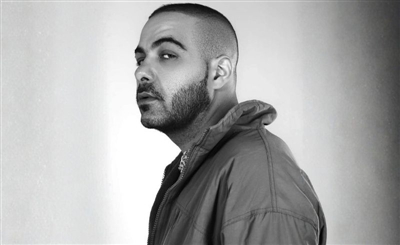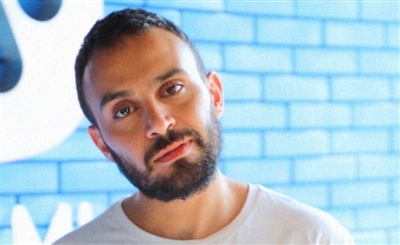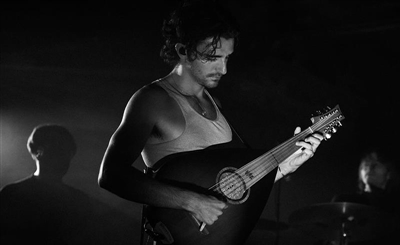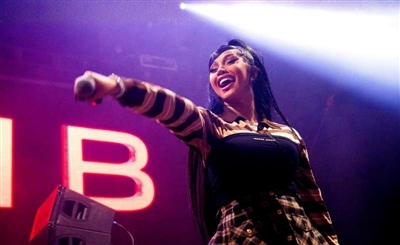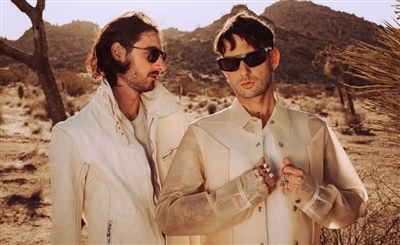ARTIST SPOTLIGHT: Moktar - On Sampling, Identity and Arab Electronica
Australian based Egyptian producer Moktar melds his diverse identity into vibrant rhythms that harmonize East and West.
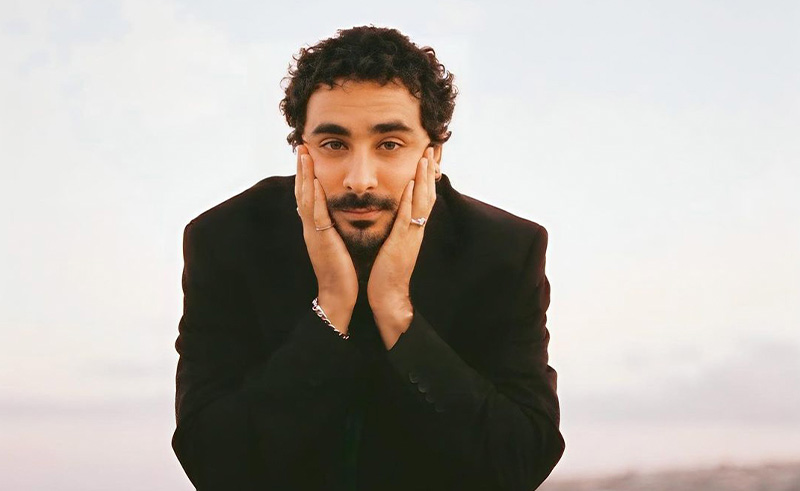
Caught between two worlds, “neither fully belonging to one nor the other”, Australian-Egyptian producer and DJ, Moktar harnesses this duality, placing his unique identity at the forefront of his musical catalog.
Growing up in the aftermath of the Cronulla riots of December 2005, whereby crowds targeted individuals of Middle Eastern descent and appearance, a young Moktar confronted the daily challenges of racism and discrimination head-on.
Immersed in music from an early age, largely influenced by his father, an orchestral musician, Moktar discovered solace in diverse sounds. Drawing from his extensive repertoire, he delved into the art of sampling, exploring various styles that molded his musical sensibilities, from Omar Souleyman to Acid Arab.
Moktar’s sounds and performances are electrifying and unapologetically bold. A spark in the Australian clubbing scene. "I thrive on crafting an atmosphere that transports people to another realm," Moktar shares with SceneNoise. "Even if just for a fleeting moment."
Taking center stage at renowned venues such as Club 77 and underground raves in the Australian shire whilst being signed to Mall Grab’s record label Steel City Dance, Moktar leverages his homeland's musical fabric as a springboard for creativity, stitching inspirations from his surroundings to his vibrant Arab heritage.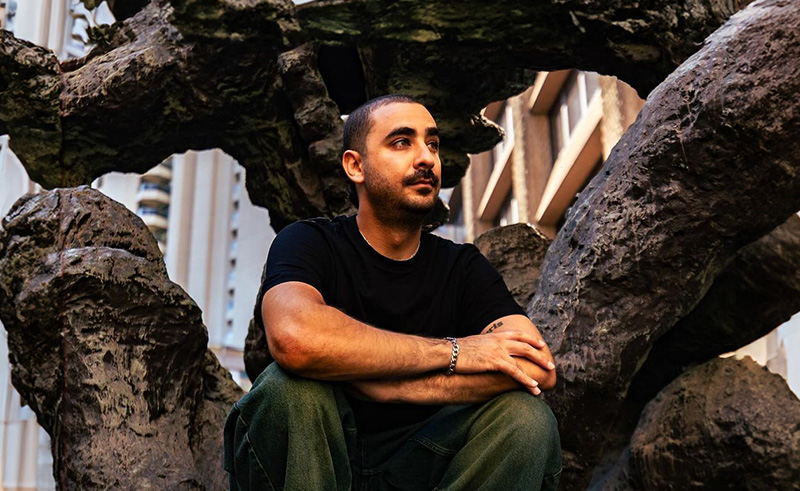 What sparked your passion for music, DJ-ing, producing, and overall drew you into the world of music?
What sparked your passion for music, DJ-ing, producing, and overall drew you into the world of music?
I was surrounded by the sounds of orchestras, the rhythm of traditional Egyptian tunes, with the work of my fathers arrangements. Watching him ignited something within me – a desire to create, to move people with sound. So, I delved into DJing and producing, inspired by his artistry and driven by a desire to carve my own path in the world of music. His influence really shaped my passion and set me on this journey to share my love for music with the world. What insights can you share about being signed under Mall Grab’s esteemed label, Steel City Dance?
Being signed under Mall Grab's label, Steel City Dance has been an absolute game-changer for me. The exposure, the support, it's the next level. Being part of Steel City Dance has opened doors I never knew existed. It's all about the community, the vibe, the passion for underground music. And let me tell you, being a part of that scene, it's like being part of a family. We're all pushing boundaries, challenging norms, and creating something truly special together. It's not just about the music; it's about the culture, the movement.Your signature style intertwines dance music and techno with Arabic percussion and instrumentation. Could you delve deeper into the genesis of this fusion and the primary influences shaping it?
Blending dance music and techno with Arabic percussion and instrumentation, it's all about honoring my roots while embracing the global dance scene. Growing up in a household filled with the rich sounds of Egyptian music, it was only natural for me to infuse those elements into my own sound. Traditional Arabic percussion and melodies of Middle Eastern instruments, they've always resonated with me on a deep level.
But it wasn't until I started exploring the world of electronic music that I saw the potential to merge these two worlds. Drawing inspiration from artists like Acid Arab and Omar Souleyman, I began experimenting with fusing traditional Arabic sounds with modern electronic beats. A fusion that's as diverse and dynamic as the cultures that inspire it.
It's about bridging the gap between East and West, tradition and innovation, while creating something that's uniquely my own. And let me tell you, seeing people from all walks of life come together on the dance floor, united by the universal language of music, that's what it's all about.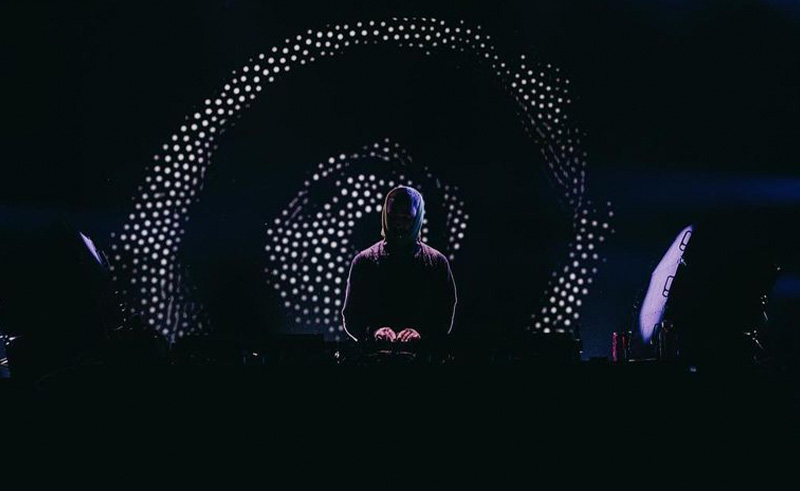 Could you walk us through your creative process, from production to sampling? How do you find your rhythm and inspiration?
Could you walk us through your creative process, from production to sampling? How do you find your rhythm and inspiration?
My creative process is so unpredictable. It all starts with a spark of inspiration, whether it's a melody that's been swirling around in my head or a beat that sets me going. From there, it's all about experimentation.
I might start by laying down a groove, tapping into my collection of Arabic percussion samples to create a rhythm that's both hypnotic and infectious. Then, I'll layer in electronic elements – synths, basslines, you name it – to add depth and texture to the track.
But here's where the magic happens: sampling. I'll dive into my library of traditional Arabic music, hunting for snippets of vocals, melodies, anything that catches my ear. Then, I'll chop, splice, and manipulate those samples until they fit seamlessly into the mix, adding that authentic Middle Eastern flavor to the track.
But it's not just about the sounds; it's about the vibe, the energy. Whether I'm in the studio or behind the decks, I'm always chasing that feeling – that moment when everything clicks into place, and the music takes on a life of its own. And when it does, there's nothing quite like it. That's where I find my rhythm, my inspiration – in the magic of creation.
With your heritage prominently shaping your sonic identity, how did growing up in a post-Cronulla riots society influence your sound evolution?
Growing up in a post-Cronulla riot definitely had its impact on me and my sound. You see, those events stirred up a lot of emotions and tensions in the community, and as a DJ, I felt it was important to address those issues through my music. So, I started incorporating elements of multiculturalism and unity into my sets, blending different genres and cultural influences to promote harmony and understanding on the dance floor. It's all about using music as a tool for bringing people together, regardless of their background or where they come from.
How has your upbringing in Australia, particularly in the Shire, molded your musical identity? Additionally, what's the pulse of the underground electronic scene there, and do you see yourself as a leading figure in it?
As for whether I see myself as a leading figure in it, mate, I'll leave that up to others to decide. What I do know is that I'm passionate about what I do, and I'm committed to pushing the envelope and taking risks with my music. If that means I become a leading figure in the scene, then so be it. But at the end of the day, it's not about fame or recognition; it's about the music, the culture, and the connections we make along the way.
In saying that it wasn't the easiest place to grow up in with the racism but it definitely taught me to go against the grain and work towards what I believed in.
You perform in various dance clubs both in Australia and Europe. What elements do you believe contribute to a successful performance, and which venues hold a special place in your heart as a performer?
When it comes to a successful performance, it's all about creating an experience – a journey that takes the audience on a ride they won't soon forget. And for me, there are a few key elements that contribute to that.
It's about the music. I spend hours curating playlists, fine-tuning my sets to build energy, tell a story, and keep the crowd moving from start to finish. But it's not just about playing tracks; it's about reading the room, feeding off the energy of the crowd, and adjusting on the fly to keep the vibe alive.
Then there's the atmosphere. From the lighting to the visuals to the overall vibe of the venue, every element plays a role in shaping the experience. Whether it's an intimate underground club or a massive festival stage, I thrive on creating an atmosphere that transports people to another world – even if it's just for a few hours.
As for venues that hold a special place in my heart, mate, there are too many to count. From the iconic clubs of Sydney to the legendary dance floors of Berlin, each venue has its own unique charm and energy. But if I had to pick one, it'd have to be this little underground spot in Sydney called Club 77 – a hidden gem tucked away. There's something magical about that place – the raw energy, the sense of freedom, the feeling that anything is possible. It's moments like those that remind me why I do what I do – to create memories, to bring people together, and to share the music that moves us all.
Your debut track ‘Silk’ confronts themes of racism and grappling with identity. How does your music serve as a reflection of your inner narrative? Also, could you share other tracks that hold special significance for you?
‘Silk’ was a deeply personal track for me, born out of my own experiences grappling with identity and confronting racism. See, as an Egyptian Australian, I've often felt caught between two worlds – neither fully belonging to one nor the other. ‘Silk’ was my way of exploring those feelings, of confronting the stereotypes and prejudices that I've faced, and reclaiming my identity on my own terms.
But it's not just about me; it's about sparking conversations, challenging perceptions, and shining a light on issues that often go overlooked. That's the power of music – it's a platform for expression, a tool for change.
Your latest track offers a fresh interpretation of Saad El Soghayar’s classic 'Hatgawez'. Could you shed more light on this creative endeavor? Additionally, are there any upcoming releases you're particularly excited about?
Crafting a fresh interpretation of Saad El Soghayar's classic 'Hatgawez' was a true labor of love for me. Growing up listening to his music, I've always been inspired by the timeless melodies and infectious rhythms of Egyptian Shaabi music. So when the opportunity arose to put my own spin on one of his iconic tracks, I jumped at the chance.
But it wasn't just about reimagining the song, it was about paying homage to the original while adding my own unique flair. I wanted to capture the essence of the original while infusing it with a modern electronic twist – blending traditional Arabic instrumentation with pulsating rhythms and hypnotic synths.
It’s a track that's both nostalgic but also forward-thinking, it honors the past and embraces the future. It's a celebration of Egyptian culture, a tribute to the music that shaped me, and a testament to the power of collaboration across generations and genres. We actually sent the track to Saad and he loved it, which was quite surprising.
As for upcoming releases, I've got a few projects in the works that I'm really excited about. I've been collaborating with some incredible artists – both here in Australia and abroad – on some new tracks that push the boundaries of genre and style. Without giving too much away, let's just say there's plenty of fresh music on the horizon that I can't wait to share with the world. Watch this space, mate. We're just getting started.



